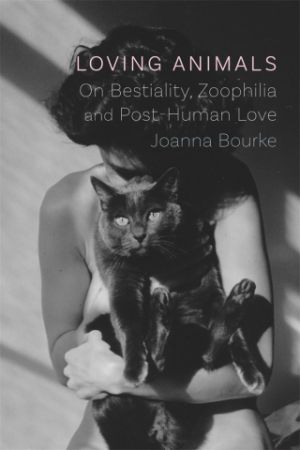Loving Animals: Difference between revisions
No edit summary |
No edit summary |
||
| Line 19: | Line 19: | ||
In the final chapter, she delves into methods of communicating with animals and nonverbal humans, and reminds everyone that we've historically denied [[sexuality]] to humans living with disability. She posits that, just as there's room to understand the ethics of allowing all adult humans to express their sexuality and [[love]], we shouldn't lose sight of the possibility of the same for adult non-humans. With a focus on communication and love, there's a path forward to explore a kind of true companionship with animals while still denying abuse. | In the final chapter, she delves into methods of communicating with animals and nonverbal humans, and reminds everyone that we've historically denied [[sexuality]] to humans living with disability. She posits that, just as there's room to understand the ethics of allowing all adult humans to express their sexuality and [[love]], we shouldn't lose sight of the possibility of the same for adult non-humans. With a focus on communication and love, there's a path forward to explore a kind of true companionship with animals while still denying abuse. | ||
{{People}} | |||
[[Category:Culure]] | [[Category:Culure]] | ||
Revision as of 04:35, 1 December 2023
| This article is a stub. You can help Zoophilia.wiki by expanding it. |
 Front cover of the book | |
| Author | Joanna Bourke, FBA |
|---|---|
| Country | Great Britain |
| Language | English |
| Subject | Zoophilia, Queer Theory |
| Genre | Research |
| Publisher | Reaktion Books LTD |
Publication date | 2020 |
| Pages | 191 |
| ISBN | 978-1-78914-310-2 |
| Website | http://www.bbk.ac.uk/history/our-staff/academic-staff/joanna/professor-joanna-bourke |
Loving Animals is a book by Gresham College historian Joanna Bourke, released in 2020. It contains an overview of Western treatment of zoophilia and bestiality, explores how we approach the concept of sexual abuse as a society, and introduces some zoophile points of view. She presents each side in their own words, using juxtaposition more than interpretation.
In the final chapter, she delves into methods of communicating with animals and nonverbal humans, and reminds everyone that we've historically denied sexuality to humans living with disability. She posits that, just as there's room to understand the ethics of allowing all adult humans to express their sexuality and love, we shouldn't lose sight of the possibility of the same for adult non-humans. With a focus on communication and love, there's a path forward to explore a kind of true companionship with animals while still denying abuse.